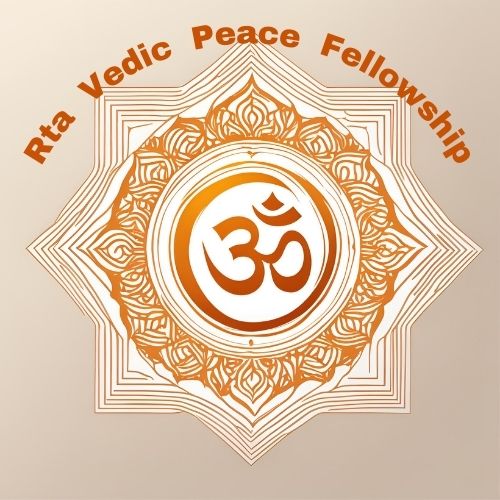Life Choices
THE VEDIC APPROACH TO LIFE CHOICES
What is a life choice?

Life choices are not the same as lifestyle choices. Life choices are broader and more impactful decisions that shape your life’s path (experiences, relationships and personal growth). Lifestyle choices are more about the daily habits and routines that define your way of living. Nevertheless, both types of choices are interconnected and contribute to your overall life experience.
Here are a few key points about life choices:
- Impact on Life: Every choice we make has the potential to influence our future. Some decisions may have immediate effects, whereas others may shape our lives over the longer term.
- Alignment with one’ values: Making choices that align with our true selves and core values can lead to a more satisying life.
- Decision-Making Process: It’s important to reflect on our options and consider the potential outcomes before making a decision. Sometimes, gut instinct can be a helpful guide.
- Opportunities and risks: Life choices often involve taking risks and embracing new opportunities, which can foster personal growth and new life experiences.
Our choices define who we are and the life we lead. These need to respect the environment, but in relation to global environmental degradation, we believe that the Devine had made ample provision in nature for man’s developmental needs. Further, that the disharmony between humans and the environment has been created by sub-optimal energy prescriptions of matter-based energy and radiating motion.
The Vedic approach to life choices

The Vedic approach to life choices is deeply rooted in ancient Indian philosophy and spirituality. It emphasizes living in harmony with the natural order and understanding one’s purpose in life. There are some key concepts and by following the principles therein, the Vedic approach aims to create a life of balance, fulfillment, and spiritual enlightenment. The concepts are:
The Four Purusharthas
The Vedic tradition outlines four main goals of human life, known as the Purusharthas:
1. Dharma: This refers to living a life of righteousness and duty. It involves understanding and fulfilling one’s responsibilities and moral obligations.
2. Artha: This is the pursuit of wealth and prosperity. It emphasizes the importance of material well-being and financial stability, but within the bounds of ethical conduct.
3. Kama: This represents the pursuit of pleasure and emotional fulfillment. It includes enjoying life’s pleasures in a balanced and responsible manner.
4. Moksha: This is the ultimate goal of liberation and spiritual freedom. This involves transcending the cycle of birth and death and realising one’s true self.
Principles of Vedic Living
Harmony and Balance: The Vedic approach encourages living in harmony with nature and maintaining a balance between the physical, mental and spiritual aspects of life.
Interconnectedness: The vedic approach emphasizes the interconnectedness of all beings and the importance of leading a life that contributes to the well-being of the whole universe.
Ayurvedic practices: Incorporating Ayurvedic principles for health and well-being is considered essential. This includes a balanced diet, regular exercise and mental practices like meditation.
Decision-Making in the Vedic Context
- Self-Reflection: Making life choices involves deep self-reflection and understanding one’s true nature and purpose.
- Ethical Considerations: Decisions should be made with a sense of duty and righteousness, ensuring they align with one’s Dharma.
- Spiritual growth: Choices should ultimately contribute to one’s spiritual growth and the attainment of Moksha.
By following these principles, the Vedic approach aims to create a life of balance, fulfillment, and spiritual enlightenment.
The Vedic approach to life choices, as contrasted with say the Western approach

The Western approach to life choices often differs from the Vedic approach in several key ways, reflecting different cultural, philosophical, and historical influences. Here are some contrasts:
1. Individualism vs. Collectivism
- Western Approach: Emphasizes individualism, personal freedom, and self-expression. People are encouraged to pursue their own goals and aspirations, often prioritizing personal happiness and success.
- Vedic Approach: Focuses more on collectivism and the interconnectedness of all beings. Decisions are often made with consideration of their impact on family, community, and the natural world.
2. Materialism vs. Spiritualism
- Western Approach: There is a strong emphasis on material success and the accumulation of wealth and possessions. Achieving financial stability and career success are often seen as primary goals.
- Vedic Approach: While material well-being (Artha) is important, it is balanced with spiritual goals (Dharma and Moksha). The ultimate aim is spiritual growth and liberation.
3. Decision-Making Process
- Western Approach: Decisions are often made based on rational analysis, personal desires, and individual rights. There is a focus on logical reasoning and empirical evidence.
- Vedic Approach: Decisions are guided by spiritual principles, ethical considerations, and a sense of duty (Dharma). Intuition and self-reflection play significant roles in the decision-making process.
Life Goals
- Western Approach: Life goals often revolve around personal achievement, career success, and the pursuit of happiness. There is a focus on setting and achieving personal milestones.
- Vedic Approach: Life goals are framed within the context of the four Purusharthas (Dharma, Artha, Kama, Moksha), aiming for a balanced and harmonious life that leads to spiritual liberation.
Health and Well-being
- Western Approach: Health and well-being are often addressed through modern medicine and scientific advancements. There is a focus on physical health and fitness.
- Vedic Approach: Emphasizes holistic health through Ayurveda, which includes physical, mental, and spiritual well-being. Practices like yoga and meditation are integral to maintaining balance.
Ethical and Moral Framework
- Western Approach: Ethical decisions are often guided by secular principles and individual moral codes. There is a focus on human rights and personal autonomy.
- Vedic Approach: Ethics are deeply rooted in spiritual teachings and the concept of Dharma. Moral decisions are made with a sense of duty and righteousness.
Both approaches offer valuable insights and can complement each other in various ways. Understanding these differences can help individuals make more informed and balanced life choices.
Some misconceptions about the Vedic approach to life

There are several common misconceptions about the Vedic approach to life, often stemming from misunderstandings or oversimplifications of its principles. Understanding these misconceptions can help in appreciating the depth and applicability of the Vedic approach to life in various contexts.
Here are a few misconceptions:
1. Vedic Teachings are Only for Monks and Ascetics
- Misconception: It’s often thought that Vedic teachings are only meant for monks or those leading an ascetic life.
- Reality: Vedic teachings are designed for everyone, offering guidance on how to live a balanced life, whatever one’s profile.
2. Vedic Philosophy is Only About Religion
- Misconception: Many people think that the Vedic approach is solely religious and only relevant to those practicing Hinduism.
- Reality: Although rooted in ancient Indian spiritual texts, Vedic philosophy encompasses a broad range of teachings on ethics, health and personal development which can be applied universally, regardless of religious affiliation.
3. Vedic Practices are Outdated
- Misconception: There’s a notion that Vedic practices are ancient and not applicable to modern life.
- Reality: Many Vedic practices, such as yoga, meditation and ayurveda, are highly relevant today and are widely adopted for their benefits to physical, mental and spiritual well-being.
4. Vedic Astrology Predicts the Future with Certainty
- Misconception: Some believe that Vedic astrology (Jyotish) can predict the future with absolute certainty.
- Reality: Vedic astrology provides insights into potential influences and tendencies based on planetary positions, but it does not offer definitive predictions. It is used to guide individuals to make informed decisions.
5. Vedic Approach is Fatalistic
- Misconception: Some think that the Vedic approach promotes a fatalistic view, where everything is predestined and individuals have no control over their lives.
- Reality: The Vedic approach emphasizes the importance of Dharma (duty) and Karma (deeds), suggesting that while certain aspects of life are influenced by past acts, individuals have the power to shape their future through current actions.
Our perspectives and mentorship, whilst based on Hindu beliefs, practices and philosophy, can benefit people of all religions and nationalities.
With regard to fatalism, life and lifestyle choices at the individual level, irrespective of which philosophy was used to derive them, are unlikely to significantly reduce the disharmony between man and the environment at the collective or planetary level. Existential threats have precipitated in the forms of:
- Environmental degradation and its consequences
- Natural-resource depletion and its consequences
These threats are expected to worsen as humanity is predicted to continue to rely on sub-optimal energy sources for development, which are based on matter energy (combustion and fission) as well as renewables.
Informed and concerned individuals in the present, do now understand the mistakes of the past, but their power to shape the future is restricted by the present – the scientific view of nature which has a firm grip on minds. Most people can therefore only engage in protests, divestment campaigns and numerous climate-change mitigation measures. Others take comfort by donating money to environmentalist and climate-action organisations. A few pursue options such as geo-engineering and fusion. Alas, none of these measures can overturn the fatality enshrined in the thermodynamic perspective of life.
There is even a rise in proposals of population control and degrowth, however, as religious individuals, we believe that such measures are against the wishes of the Devine, who has made ample provisions for man’s development in nature. We believe that the carrying capacity of the Earth is not endangered by growth. The Vedic Approach encourages determinism, not fatalism.




